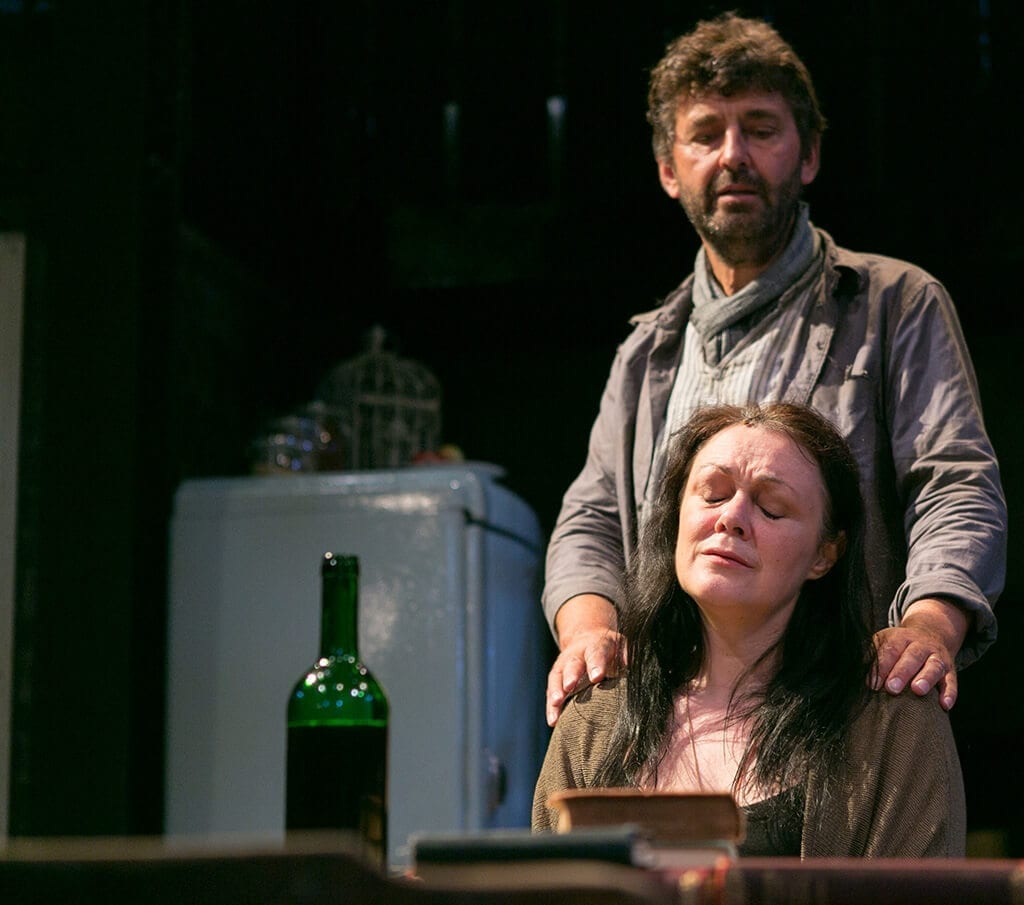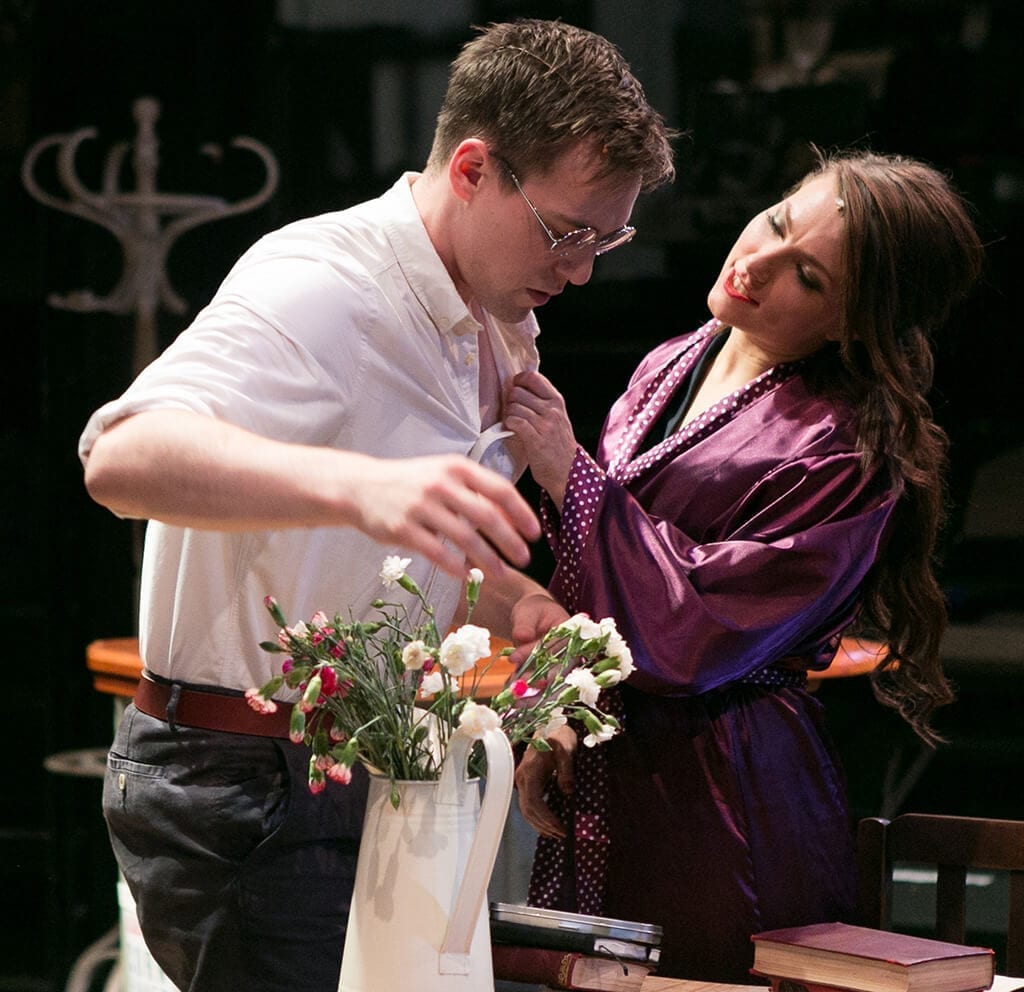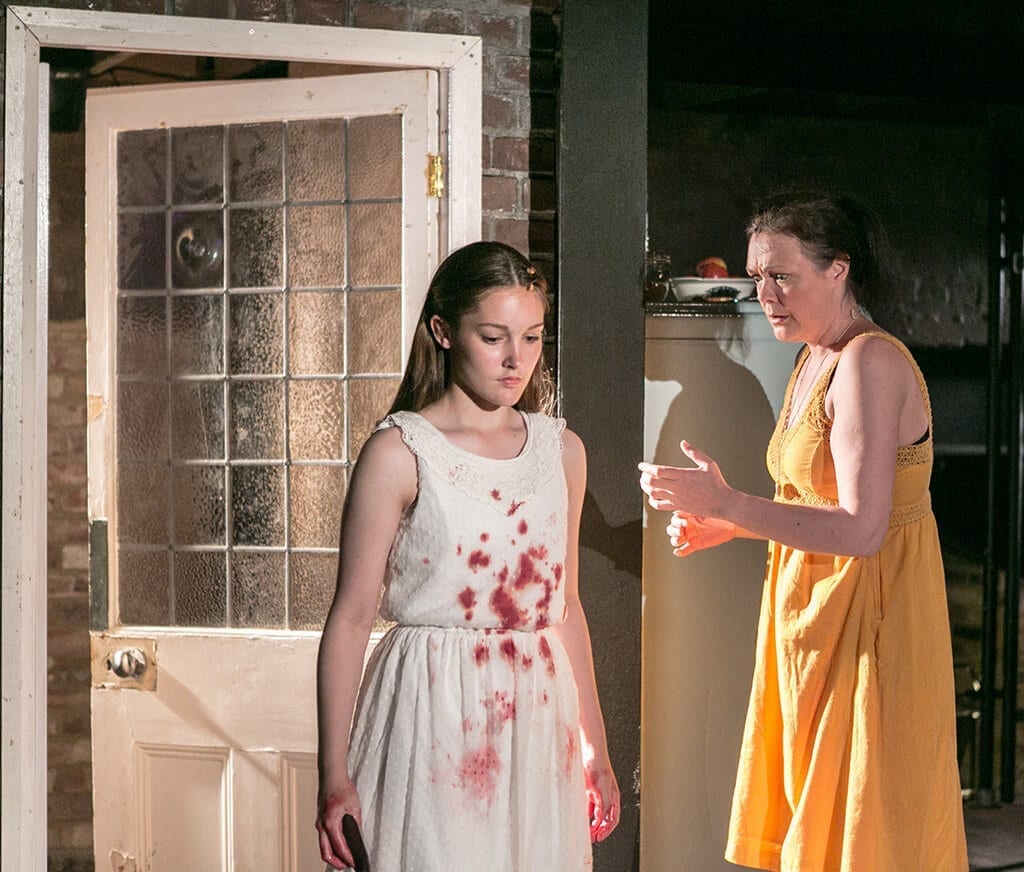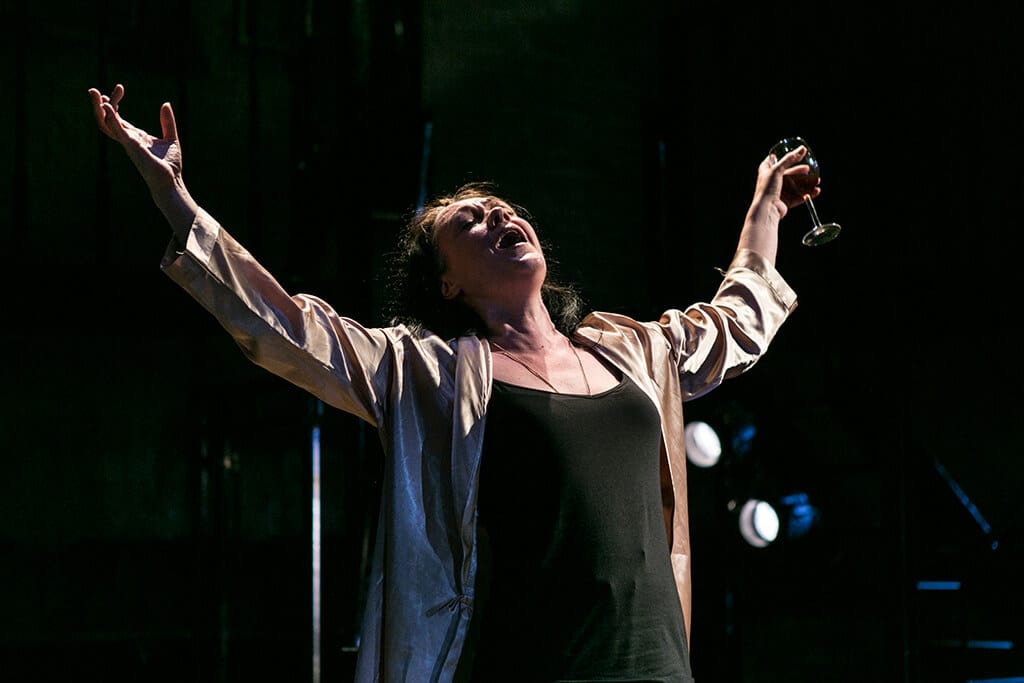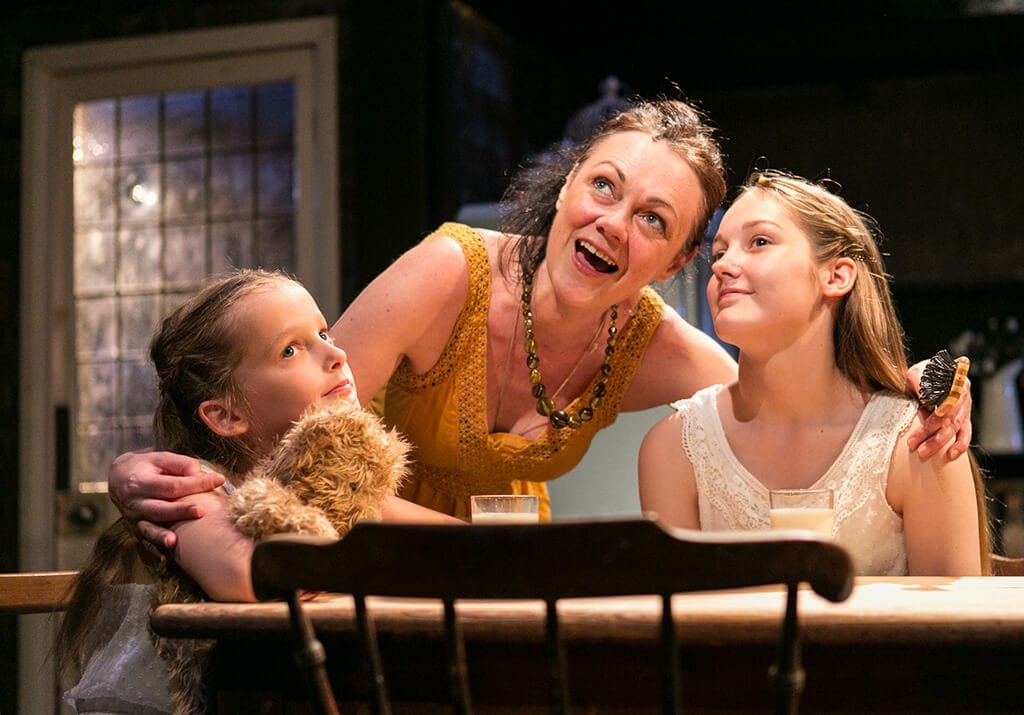Through a glass darkly might describe the viewer’s experience of this odd but powerful piece, which is getting its world première at one of London’s leading off-West End theatres. The auditorium of the Arcola – an imaginatively converted factory in the once run-down, but now distinctly up-market Hackney – was packed last night to watch the impact on what the blurb calls “a dysfunctional family” of the arrival of a new lodger. The family is dysfunctional all right – an alcoholic mother, a nymphomaniac younger daughter and a depressive older daughter. The new arrival is a harmless drudge, cataloguing the works of an obscure 18th century poet. But he is young and handsome, exciting the resentment of the already established lodger and arousing the interest of the younger daughter, while the bibulous matriarch tries to keep the lid on the family’s guilty secret.
This may not sound like a barrel of laughs, but there are lighter moments, particularly when the little girls make their appearance. Yes, in flashbacks younger versions of the two daughters make their appearance, being charmingly girlish and being properly mothered by their not-yet-alcoholic Mum. The grown-up actors might have pondered on W.C. Fields’ opinion of children as the girls won the hearts of the audience. But all the actors were excellent, including the children, and the actors were equally good singers, with excellent accompaniment from the three musicians. The harmonies were particularly impressive, with all five actors sometimes joining to create an uplifting wall of sound.
There is much sound and fury, but what does it signify? Much strong language there is too, as the characters vent their frustration and down their drinks. What is the guilty secret that the bookish lodger tries to expose? The paterfamilias, a maker of mirrors, died mysteriously in his workshop, from which his elder daughter emerged with blood on her hands. A broken mirror brings bad luck, and a sliver from this one may have got into the elder daughter’s heart, like the particle of glass that entered Kay’s heart in the Hans Christian Andersen story. This may sound portentous, and indeed, the play is rather portentous. But there is much to appreciate in the quality of the acting and the quality of the music. The audience certainly cheered it to the rafters.

